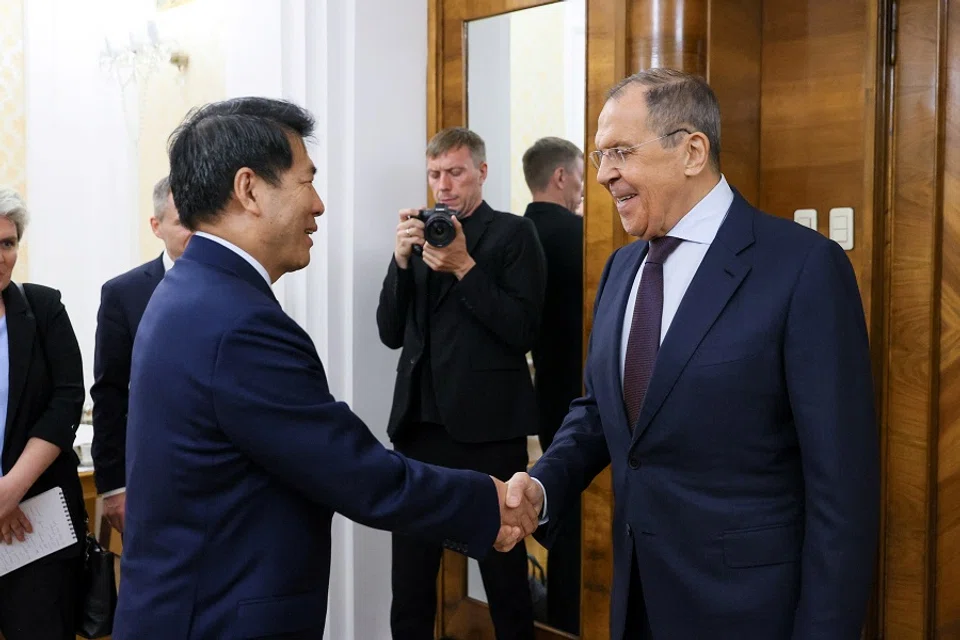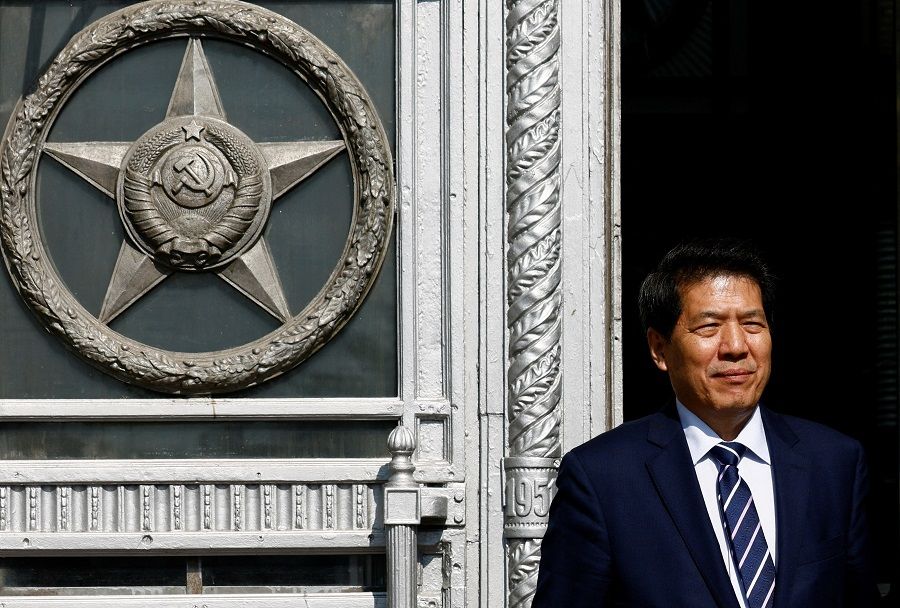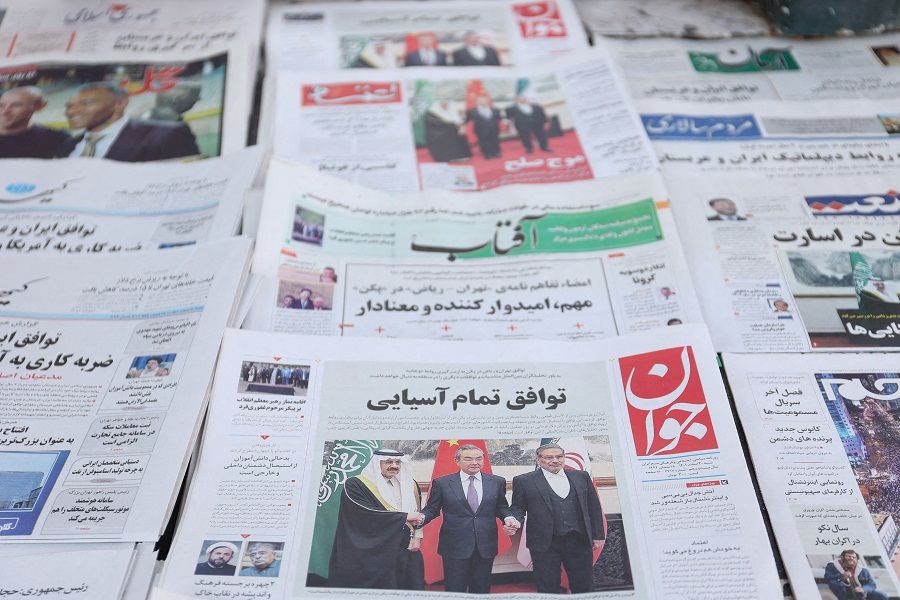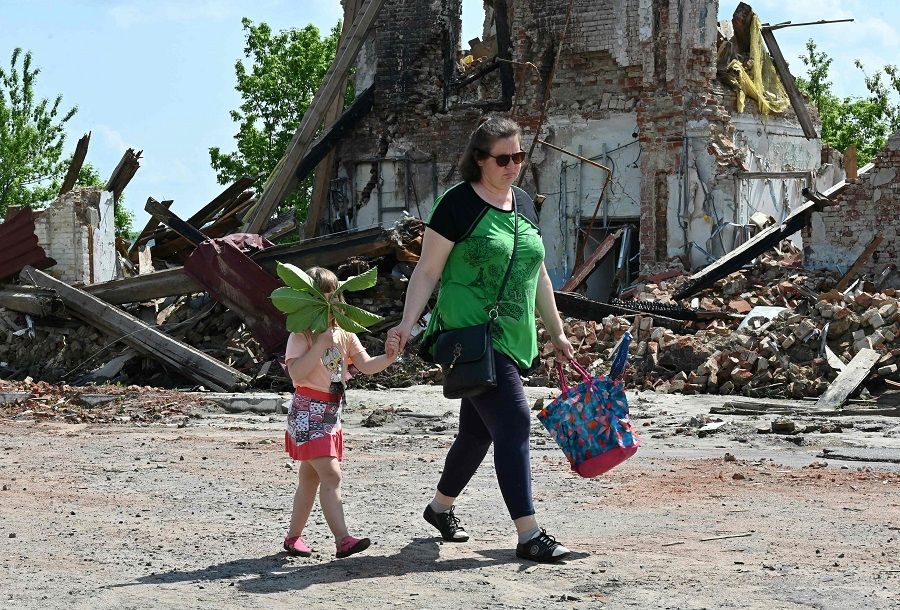Peacemaker role in Russia-Ukraine war could be a historic milestone for China

China's special envoy for Eurasian affairs Li Hui recently visited Ukraine, Poland, France, Germany and Russia to engage in comprehensive dialogue with various parties on the political settlement of the Ukraine crisis.
Over the past year, the Russia-Ukraine war has brought about serious consequences for the two warring parties, a deep impact on Europe's security situation, and many uncertainties to global peace, stability and development. All eyes are now on China's position and actions in helping to resolve the situation in Ukraine.
Marginal role in Europe's security affairs
This is in fact a historic milestone in China-Europe relations as China breaks away from its relatively passive and marginal role in its involvement in Europe's security affairs. Over the past century, it was the European powers that held influence over China's security environment and that of its surrounding regions. China hardly ever took an active part in influencing the security environment in Europe.
During the First World War, China and the Allies formed an alliance. It supported the Allies with food, deployed over 100,000 Chinese labourers, and participated in the Siberian intervention. However, China did not receive due respect from the European powers during the Paris Peace Conference despite also being one of the victors, and the country's sovereignty was seriously compromised. The League of Nations established during the two world wars also failed to stop the expansion of the fascist forces and the Japanese invasion of China.
...this is the first time in the history of China-Europe relations that China has sent a representative to participate directly in the shaping of European security affairs.

After the People's Republic of China was founded in 1949, it established ties with various European countries while opposing hegemonic powers' meddling in and control over smaller and middle-sized nations in Europe. China also showed support for European integration and participated in the United Nations' peacekeeping operations in the former Yugoslavia, sending its police force on peacekeeping missions to Bosnia-Herzegovina and Kosovo. Nonetheless, China was still not directly involved in Europe's security situation.
After playing a marginal role in European security affairs over the past century, this is the first time in the history of China-Europe relations that China has sent a representative to participate directly in the shaping of European security affairs.
Success in Saudi-Iran mediation
From a practical point of view, this is also an opportunity for China to further participate in global security governance. International disputes are typically resolved in two ways: either with coercive means, through wars, sanctions and arbitrations, or non-coercive means, through political and diplomatic actions such as peaceful negotiations, consultations and discussions.
In terms of global security governance, China advocates the non-coercive approach when handling international disputes, and urges peace talks when settling critical international issues.
In February 2023, China issued the Global Security Initiative Concept Paper, which put forth the core concepts and principles for improving global security governance. In March, China successfully brokered the Saudi-Iran rapprochement, which led to the signing of a Joint Trilateral Statement by the People's Republic of China, the Kingdom of Saudi Arabia and the Islamic Republic of Iran. This is a milestone in the de-escalation of international relations in the Gulf and the Middle East, which is a refreshing change for the world.
China will most likely provide good offices by facilitating dialogue, rather than directly mediating or imposing sanctions.

The outside world is also watching to see if China can replicate in Europe its successful mediation in the Middle East, and push for a political settlement of the Ukraine crisis.
In its Position on the Political Settlement of the Ukraine Crisis document, China stated that the core of its position is to promote peace talks in the hope that the parties involved will reach a comprehensive ceasefire, de-escalate the situation and open the door to a political settlement as soon as possible, and continue to play a constructive role in those regards.
China has since spoken with various parties including Ukraine. Based on its approach, China will most likely provide good offices by facilitating dialogue, rather than directly mediating or imposing sanctions.
International view of China's efforts
However, whether China's push for peace talks can be realised depends on all parties working together to create conducive conditions for the talks. At present, the situation in Ukraine remains fluid. While Russia and Ukraine welcome China's overtures, Europe and the US are still processing China's efforts. For now, the positions of countries in Europe and the US can be broadly categorised in three categories:
One, welcoming and affirming of China's role. This stance is held by France and Hungary, which look forward to and support China's significant role in promoting the peace process and influencing Russia.

Two, being uncertain and cautious towards China's role. This view is held by Lithuania, the Czech Republic and the US, which believe that China will be hard put to be reliable mediator because of its own interests and partiality towards Russia.
Three, taking the middle ground and neither rejecting nor affirming China's role. This position is held by Germany, Italy and the European Union. It is uncertain which of the above positions will become the dominant position - much would depend on the consensus reached between Europe and the US.
Currently, the crisis in Ukraine is still ongoing and international calls for de-escalation have gotten louder. An increasing number of countries, including Brazil and Turkey, have issued peace plans in the hope that the war will end soon.
African countries, including Zambia, Senegal, the Republic of the Congo, Uganda, Egypt and South Africa, have recently presented a peace plan to Russia and Ukraine, and a peace mission led by the leaders from the six African countries is set to be received separately by the warring parties.
Thus, China's efforts are part of the wider calls for peace. Although it is difficult to foresee the final outcome, this is still a path to peace.
This article was first published in Lianhe Zaobao as "欧洲安全形势与中国角色".
